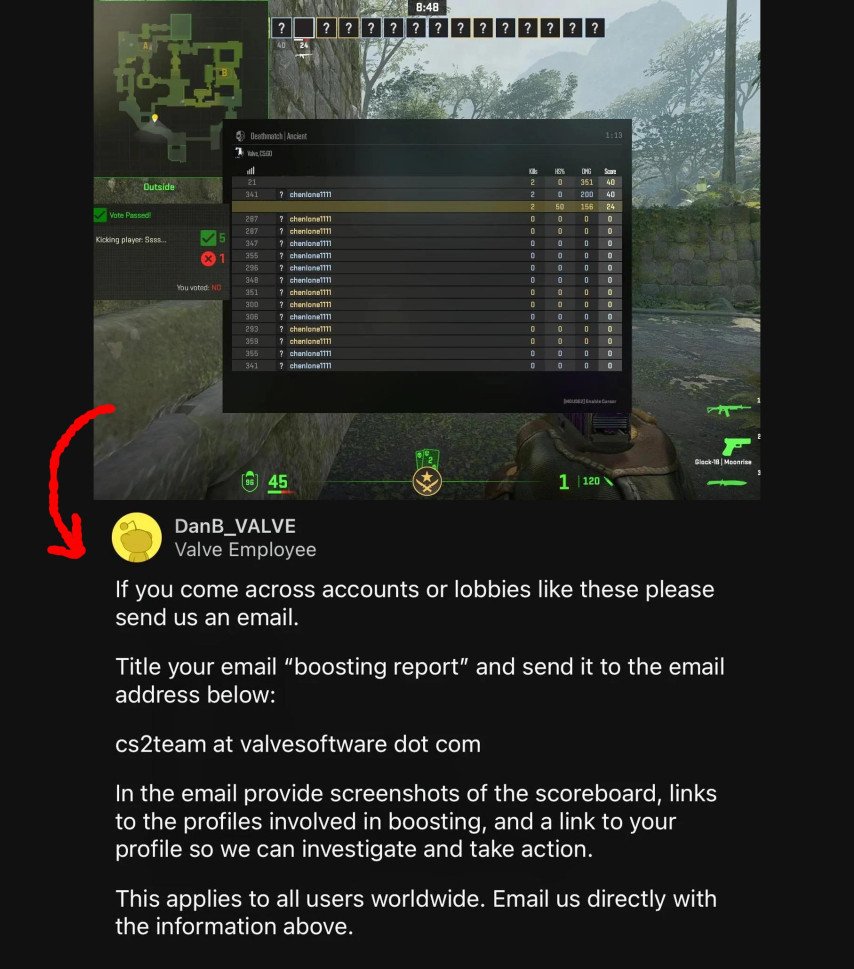Hookup Doc: Your Go-To Guide for All Things Dating
Explore the latest trends, tips, and advice in the world of dating and relationships.
When Griefing Goes Too Far: The Unseen Consequences in CS2
Discover the dark side of CS2 as we explore how griefing can spiral out of control and impact the gaming community like never before!
Understanding the Line: When Griefing Becomes Toxic in CS2
In the world of Counter-Strike 2 (CS2), the line between friendly competition and toxic behavior can sometimes become blurred. Griefing, often defined as intentional disruption of a player's experience, can take many forms—ranging from minor annoyances to severe actions that ruin gameplay. Understanding when griefing crosses into toxic behavior is essential for maintaining a positive gaming environment. While playful teasing and banter are generally accepted in the gaming community, it's crucial to recognize when such actions lead to a negative atmosphere that affects the enjoyment of others.
There are several key indicators that can help players identify when griefing shifts towards toxicity. For instance, if a player is constantly sabotaging their teammates' efforts, such as by blocking paths or intentionally causing team losses, this behavior can become detrimental. Additionally, if the actions lead to harassment or emotional distress among players, they should be addressed promptly. The community must emphasize respect and sportsmanship while also holding individuals accountable for their behavior. By fostering open discussions about griefing and its impact, players can work together to create a healthier, more inclusive gaming experience in CS2.

Counter-Strike is a popular first-person shooter game that pits terrorists against counter-terrorists in various objective-based game modes. Players can choose from a range of weapons to enhance their gameplay, including the dual berettas, which provide a unique approach to close-quarter combat. The game emphasizes team strategy, coordination, and skill, making it a favorite among competitive gamers.
The Ripple Effect: How Griefing Affects Gameplay and Community in CS2
The phenomenon of griefing in Counter-Strike 2 (CS2) extends far beyond mere annoyance; it creates a significant ripple effect that can impact gameplay and community dynamics. Players who engage in griefing often disrupt the experience for their teammates, which can lead to frustration, decreased morale, and ultimately, a diminished sense of camaraderie. The consequences can be profound, as teams that rely on collaboration may find themselves struggling against not just opponents but also their own disjointed ranks as griefers undermine collective efforts.
Moreover, the effects of griefing can lead to a broader **community disengagement**. As griefing proliferates, loyal players may decide to leave for more supportive environments, fostering a toxic culture that drives away newcomers. This creates a cycle where the community shrinks, impacting matchmaking quality and potentially leading to negative reviews. Players may turn to forums and social media to voice their discontent, further amplifying the ripple effect as they share their experiences, attracting attention to the issue and prompting developers to consider measures for mitigation.
What Are the Long-Term Impacts of Griefing on Players and Teams in CS2?
Griefing, the act of intentionally disrupting gameplay, can have significant long-term impacts on both players and teams in CS2. For individual players, consistent exposure to griefing can lead to increased frustration and diminished enjoyment of the game. This can create a cycle of negative experiences, resulting in withdrawal from the game or a decline in skill level due to lack of engagement. Additionally, players who frequently encounter griefers may develop a toxic mindset, impacting their interactions with others and fostering an environment of distrust and hostility.
At the team level, the long-term effects of griefing can jeopardize cohesion and trust among teammates. When players focus on combating internal disruptions rather than collaborating towards common goals, overall performance can suffer. Teams may see decreased morale as they struggle to navigate these challenges, leading to higher turnover rates and a lack of stability. This can create a vicious cycle where forming new teams becomes increasingly difficult, and talented players might leave for more supportive environments, leaving behind a fractured community.